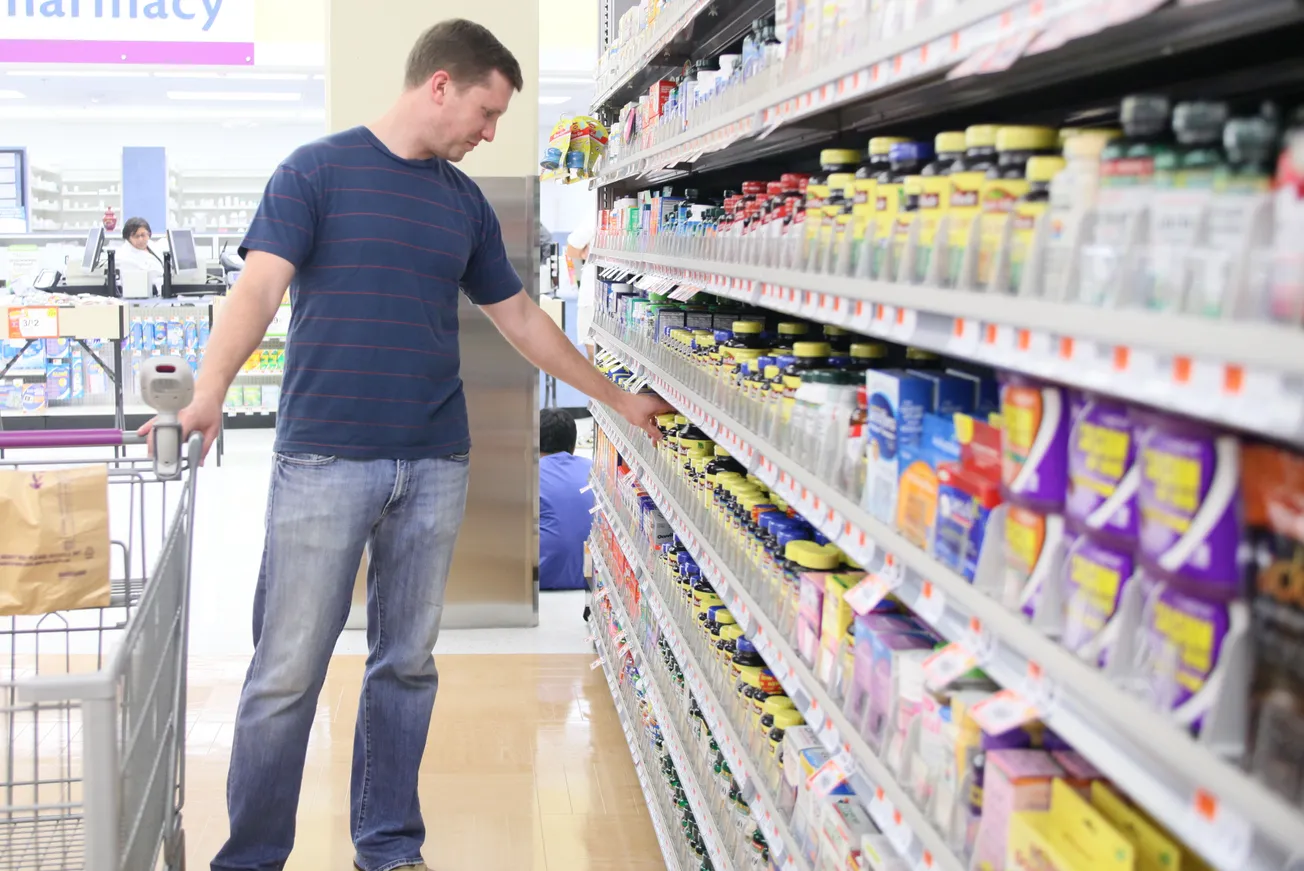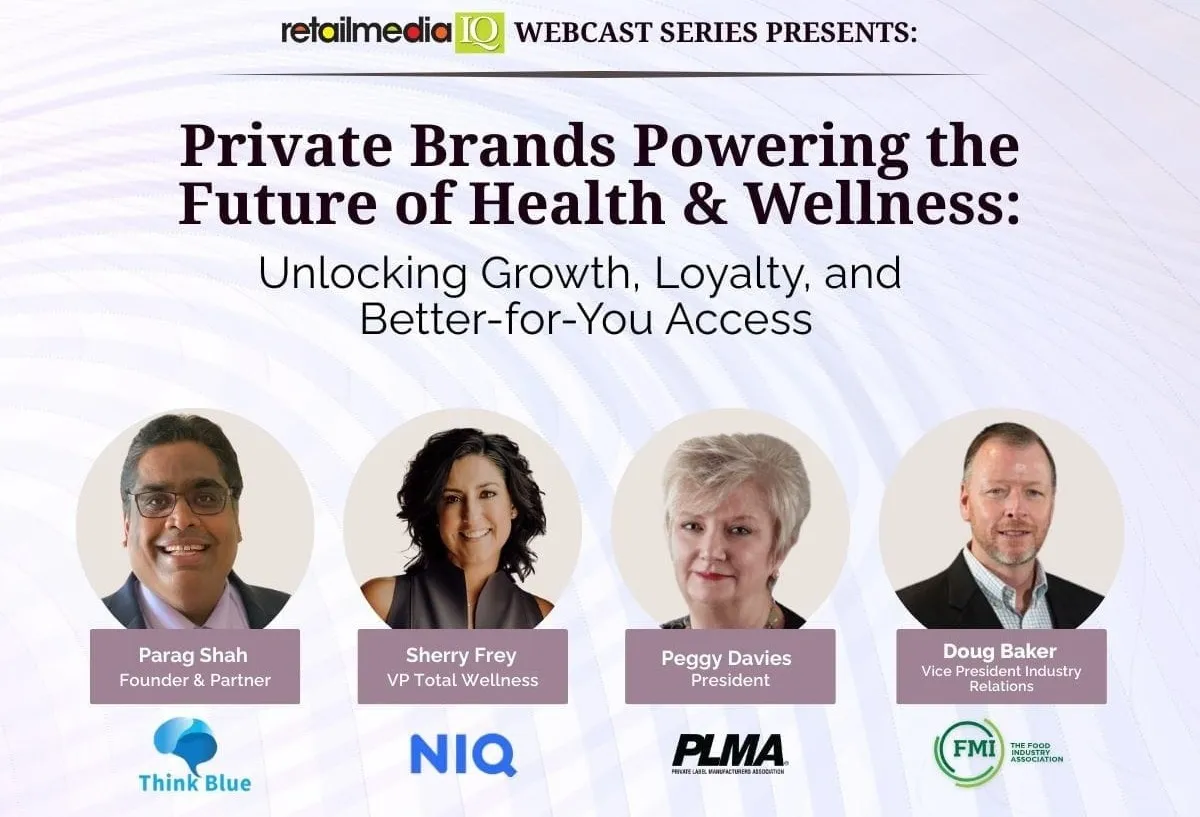By Scott Melville
Over-the-counter medicines, dietary supplements, and O-T-C medical devices play an increasingly important role in ensuring accessible, effective and affordable health care solutions for millions of Americans. At a time when health care costs are continuing to rise, and primary care physician shortages are growing, consumer health care products afford people an essential avenue for self-care, including tools for self-diagnosis, preventive health and everyday wellness. In fact, they empower Americans to take charge of their personal well-being, reducing the need for clinical visits and alleviating pressure on our beleaguered health care system.

Changing administration, markets
With the elections now behind us, and new Republican-controlled executive and legislative branches about to take control in Washington, all health care stakeholders must be ready to react to a new environment for health care legislation and regulation. At CHPA, we believe these shifts present both opportunities and challenges for the consumer health care industry, offering a chance to align industry goals with a vision that empowers consumers and strengthens public health.
CHPA recently acknowledged President-elect Trump’s selection of Robert F. Kennedy Jr. to head the Department of Health and Human Services (HHS) and the nomination of Dr. Marty Makary to lead the Food and Drug Administration. While we don’t yet know how their respective priorities, if confirmed, will impact our industry, I think we can all agree that protecting and promoting public health with more evidence-based self-care options for consumers is an idea that resonates with manufacturers and retailers alike, and is needed by our health care system.
Other changes and realities will require similar agility and adaptation for the consumer health care industry. The problem of organized retail theft has led to significant losses, additional anti-theft measures and even store closures. As brick-and-mortar stores address these real challenges, there's a continuing consumer shift toward buying self-care products online. However, online purchases come with their own risks, as counterfeit, illegal and stolen products are more common, reducing access to affordable, trustworthy health care solutions and undermining public health and market stability.
This is why CHPA prioritizes protecting consumers from counterfeit and stolen goods, advocating for the INFORM Consumers Act, now law as of July 2023, which requires online marketplaces to verify third-party sellers and share key information with consumers and law enforcement. CHPA also supports the SHOP SAFE Act of 2024, working with the SHOP SAFE Coalition to reduce counterfeit risks in online consumer health care purchases, and will be working with state attorneys general to bring further attention to the matter in the new year. As the retail landscape continues to change, we will be advocating for similar policies and regulations that provide solutions to these real threats to both our industry and consumers’ well-being.
Strengthening safety while maintaining access
The rise of counterfeit and unregulated products highlights the urgent need for stronger safeguards in the dietary supplement market. For example, the proliferation of illegal tianeptine products this year has exposed critical regulatory gaps, with products that are often deceptively marketed as supplements posing severe public health risks. This issue underscores broader vulnerabilities, where regulatory modernization is needed to prevent these types of products from reaching consumers. Suppliers and retailers must work closely together to ensure the products being offered for sale are lawful products that meet FDA regulatory requirements
This is why CHPA is advocating for comprehensive modernization of dietary supplement regulations. Single-solution fixes like the proposed Dietary Supplement Listing Act, while valuable, fall short. Mandatory product listing alone cannot effectively protect consumers or swiftly address harmful products like tianeptine. CHPA supports a more comprehensive update to the Dietary Supplement Health and Education Act (DSHEA) of 1994 that will increase transparency, strengthen appropriate regulatory authority and enhance public health.
Following our success in restoring O-T-C eligibility under HSA and FSA accounts, CHPA is now advocating for legislation to let consumers use their pretax HSA and FSA savings to purchase dietary supplements and oral care essentials too. With more people embracing holistic well-being, there's growing demand for flexibility in purchasing these products. CHPA supported the Dietary Supplements Access Act and the Oral Health Products Inclusion Act to improve access to essential self-care items, and if we are to be successful, it is imperative that all retailers get behind these bills when they are reintroduced in the new Congress and to let your representatives know you support them.
Supporting a strong and reliable regulatory framework
As CHPA remains steadfast in our commitment to safety and innovation in O-T-C medicines, we will be working hard in 2025 to secure reauthorization of the Over-the-Counter Monograph User Fee Program (OMUFA). This landmark law, enacted in 2020, must be reauthorized by the end of September 2025 to remain in effect. By advancing ingredient finalization and streamlining regulatory certainty, the next phase of OMUFA can deliver on its promise to expand access to innovative, safe and effective O-T-C medicines.
Additionally, we eagerly await FDA's final rule on Nonprescription Drug Products with an Additional Condition for Nonprescription Use (ACNU), which could enable more Rx-to-O-T-C switches using innovative, tech-enabled approaches beyond the product label. For retailers, ACNU will drive foot traffic, expand product offerings and strengthen your role as convenient one-stop-shop health destinations, as you help meet the growing demand for self-care solutions, aligning with the shift toward personalized, proactive health care.
Despite the many regulatory and legislative uncertainties before us, the consumer health care industry continues to experience growth and innovation. In 2025, we hope to see even more Rx-to-O-T-C switches, and are particularly encouraged by the success of the process, which in recent years has expanded customer access to critical products like daily oral contraceptives, hearing aids and naloxone without a prescription. While we’re pleased to see these advancements demonstrate the industry's commitment to innovation and meeting consumers' evolving needs, we remain concerned with action by the federal government to decrease consumers’ access to choice and availability. We’re particularly concerned with FDA’s recent proposed order to overturn its long-established classification of oral phenylephrine (PE) as a safe and effective O-T-C medication.
PE is the only oral nonprescription medicine for nasal congestion available without purchase restrictions, as the "behind-the-counter" requirement for pseudoephedrine (PSE) makes it less accessible, and sales restrictions associated with varying state laws create additional burdens for consumers. Data from 40 states show that less than 20% of retail stores selling O-T-C medicines also sell PSE, and PSE-containing medicines are not available in convenience or dollar stores. If PE were removed from the market, more than 80% of stores would not have an O-T-C oral decongestant available. CHPA will be providing comments to the FDA on its proposed order by the May deadline.
In the states
States continue to take on a greater role in regulating consumer health care, and CHPA reviewed over 3,900 bills and ordinances introduced last year on issues as diverse as chemical restrictions, privacy, packaging, labeling, and much more. With Congress and FDA often slow to act, states and localities are increasingly empowered to move forward to enact new laws and regulations that affect manufacturers and retailers.
For example, Vermont joined 27 states and D.C. last year in allowing students to carry and use sunscreen at school with parental consent. This commonsense law promotes skin health, addresses high skin cancer rates, and reinforces retail stores' role as convenient, trusted health destinations.
We were also pleased to see West Virginia, Kentucky and Tennessee enact legislation increasing the annual and monthly purchase limit for O-T-C cold and allergy medications containing PSE, enhancing access to effective congestion relief while maintaining safeguards against misuse.
In 2024, CHPA fought against sweeping legislation aiming to enact an age 18 restriction for dietary supplements marketed for weight loss given the legislation’s overly broad language, which would unnecessarily limit consumers’ access to a broad range of products unrelated to weight loss at all. CHPA successfully opposed several restrictive proposals in California, Maryland and Massachusetts, but serious challenges remain in New Jersey where a bill — modeled after a law that was enacted in New York in 2023 — is still pending. We expect to see additional attempts to restrict consumer access to these products introduced in more states this year.
A bright future “in store”
There’s an old adage that people generally hate two things: The way things are … and change.
As we enter a new year with so many changes in store, CHPA remains dedicated to advocating for policies that empower consumers through responsible self-care. A vibrant market of safe, effective and affordable O-T-C medicines, dietary supplements, and O-T-C medical devices is key to offering meaningful choices.
Looking ahead to 2025 and beyond, advancements in technology, preventive health and consumer awareness will drive innovation and growth in the consumer health care industry. CHPA is committed to working with Congress, the FDA, and other legislative and regulatory stakeholders to support this progress by advocating for policies and regulations that foster innovation and promote access, safety and the importance of self-care in improving public health.
Scott Melville is president and chief executive officer of the Consumer Healthcare Products Association









